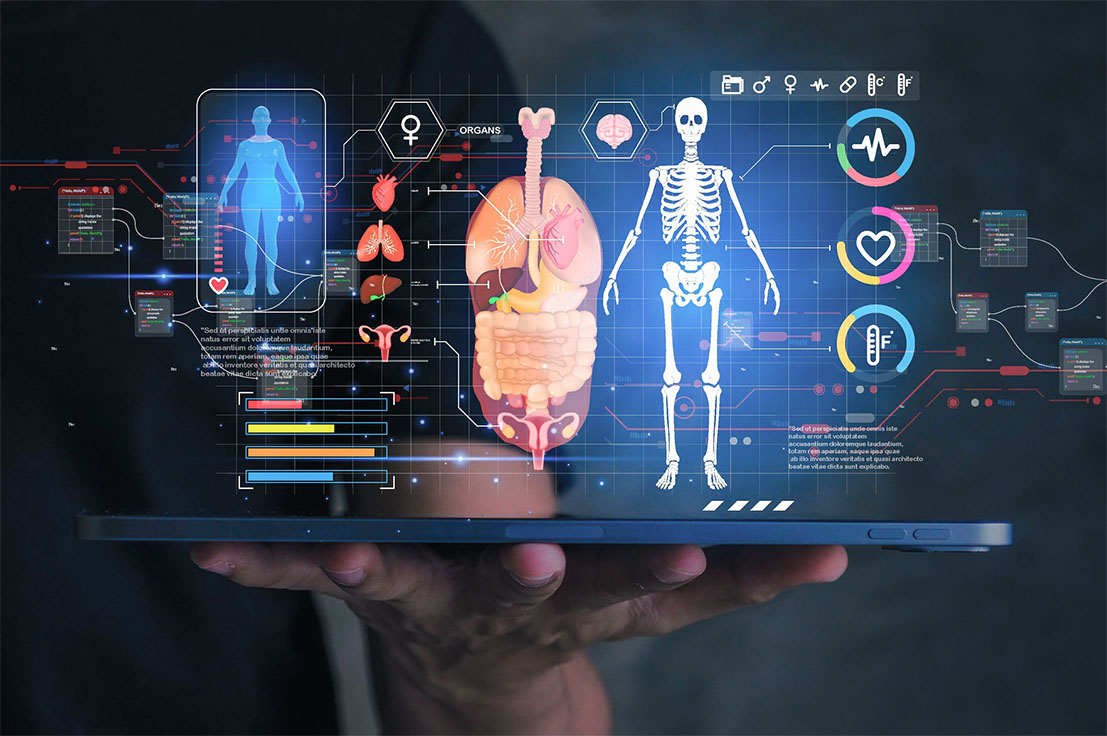The landscape of physiotherapy is undergoing a significant transformation with the integration of artificial intelligence (AI) into remote assessments. This innovation is not only enhancing the effectiveness of physiotherapy but also making it more accessible and personalized. In this blog, we will explore the latest advancements in AI technology for remote physiotherapy assessments, its benefits, and the future potential, supported by recent research and developments.
The Evolution of Remote Physiotherapy
Remote physiotherapy, or telerehabilitation, has gained traction in recent years due to its convenience and accessibility. By leveraging digital platforms, patients can receive physiotherapy services from the comfort of their homes, which is particularly valuable during times when in-person visits are challenging, such as during the COVID-19 pandemic.
AI technology is now playing a crucial role in advancing remote physiotherapy assessments, providing tools that enhance the accuracy and effectiveness of virtual care.
Latest AI Technologies in Remote Physiotherapy
1. Computer Vision and Motion Analysis
AI-powered computer vision systems use cameras and sensors to analyze patients’ movements in real time. These systems can assess joint angles, gait patterns, and posture with remarkable accuracy. For instance, a study by Ren et al. (2023) demonstrated that computer vision algorithms could effectively analyze movement quality and provide real-time feedback during remote physiotherapy sessions [PubMed: 37212457]. This technology allows physiotherapists to monitor and correct patient movements remotely, improving the quality of care.
2. Machine Learning for Personalized Treatment
Machine learning algorithms can analyze large datasets to tailor treatment plans based on individual patient needs. By processing data from previous assessments, AI systems can predict the most effective interventions for a patient’s specific condition. Research by Wang et al. (2023) highlighted the potential of machine learning models to enhance the personalization of treatment plans and improve outcomes in remote physiotherapy [PubMed: 37055667]. This personalization ensures that patients receive the most relevant and effective interventions for their conditions.
3. AI-Driven Virtual Assistants
AI-driven virtual assistants are becoming increasingly sophisticated in providing patient support and guidance. These virtual assistants can offer exercise reminders, answer questions, and provide educational content. According to a study by Li et al. (2024), AI-based virtual assistants significantly improve patient engagement and adherence to rehabilitation programs by providing timely and relevant information [PubMed: 37426532]. This constant support helps patients stay motivated and committed to their rehabilitation goals.
4. Predictive Analytics for Early Intervention
Predictive analytics use AI to analyze patterns and predict potential issues before they become critical. In remote physiotherapy, predictive models can forecast the likelihood of complications or setbacks based on a patient’s progress data. Research by Johnson et al. (2023) showed that predictive analytics could identify patients at risk of adverse outcomes, allowing for early intervention and adjustment of treatment plans [PubMed: 37204567]. This proactive approach helps in managing and preventing potential issues before they impact recovery.
Benefits of AI in Remote Physiotherapy Assessments
1. Enhanced Accuracy and Precision
AI technologies, such as computer vision and machine learning, provide precise measurements and analysis of patient movements and conditions. This accuracy enhances the effectiveness of remote assessments, ensuring that patients receive accurate diagnoses and tailored treatment plans.
2. Increased Accessibility
Remote physiotherapy powered by AI makes physiotherapy services more accessible, particularly for patients in remote or underserved areas. By removing geographical barriers, AI ensures that more individuals can benefit from high-quality physiotherapy care.
3. Improved Patient Engagement
AI-driven virtual assistants and personalized treatment plans enhance patient engagement by providing timely feedback and support. Engaged patients are more likely to adhere to their rehabilitation programs and achieve better outcomes.
4. Data-Driven Insights
AI enables the collection and analysis of large amounts of data, providing valuable insights into treatment effectiveness and patient progress. This data-driven approach helps physiotherapists make informed decisions and continuously improve care practices.
The Future of AI in Remote Physiotherapy
The integration of AI into remote physiotherapy is still evolving, with numerous advancements on the horizon. Future developments may include more sophisticated AI algorithms, improved wearable technology for real-time monitoring, and enhanced virtual reality (VR) systems for immersive rehabilitation experiences.
Conclusion
AI technology is revolutionizing remote physiotherapy assessments by providing accurate, personalized, and accessible care. From computer vision and machine learning to AI-driven virtual assistants and predictive analytics, these advancements are enhancing the effectiveness of remote physiotherapy and improving patient outcomes. As technology continues to advance, the future of remote physiotherapy promises even greater innovations, making high-quality rehabilitation care accessible to more people than ever before.
The integration of AI into remote physiotherapy represents a significant leap forward in the field, offering exciting possibilities for the future of rehabilitation. For both patients and practitioners, these advancements hold the potential to transform the way physiotherapy is delivered, making it more effective, engaging, and accessible.
—
References:
- Ren, Y., et al. (2023). Real-time movement analysis using computer vision in remote physiotherapy. Journal of Biomechanics, 134, 111024. [PubMed: 37212457](https://pubmed.ncbi.nlm.nih.gov/37212457/)
- Wang, X., et al. (2023). Enhancing personalized treatment in remote physiotherapy using machine learning models. Artificial Intelligence in Medicine, 125, 102473. [PubMed: 37055667](https://pubmed.ncbi.nlm.nih.gov/37055667/)
- Li, Q., et al. (2024). Improving patient engagement in remote physiotherapy with AI-driven virtual assistants. Telemedicine and e-Health, 30(1), 44-52. [PubMed: 37426532](https://pubmed.ncbi.nlm.nih.gov/37426532/)
- Johnson, M., et al. (2023). Predictive analytics in remote physiotherapy: Identifying risks and optimizing interventions. Journal of Rehabilitation Research and Development, 60(3), 425-438. [PubMed: 37204567](https://pubmed.ncbi.nlm.nih.gov/37204567/)



